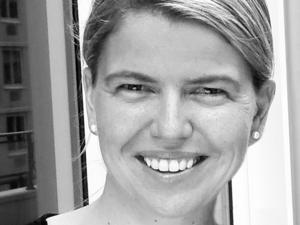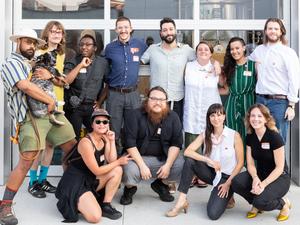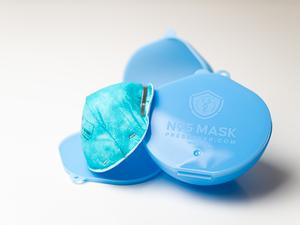
Stuart Benton, president and CEO of Rhode Island staple Bradford Soap Works, Inc., likes to surprise people. “[Once we] started talking about innovation, we heard this more often than not: ‘I didn’t know you could innovate a bar of soap,’” he said. “Well, you can.”
It’s been the company’s mission long before Benton joined in 2011, as executive vice president and CFO. In fact, Bradford has been around since 1876, when the two founders came from Bradford, England, to Rhode Island. Or, as Benton likes to put it, they came “to the textile capital of the New World from textile capital of the Old World.” Their work was primarily concerned with making flake soap of area textile mills; then, it pivoted into industrial soap application, and then, in the ‘40s and ‘50s, Bradford focused on producing a finish, one that made paper stock glossy or that kept shingles from sticking in the sun.
As paper mills moved out of New England in larger numbers in the ‘60s, the company changed tack again, focusing their efforts on making toilet soap and Private Label hand soap. It wasn’t until the early ‘80s that Bradford got into the work it’s doing today: specialty manufacturing.
Benton assured me that it does this in decidedly interesting ways. “I think probably the buzz we’re tapping into [makes us] kind of a different company,” he said. “On the science side, there’s a lot of marketing research.”
There’s lots of research going into packaging, too, he explained. Benton highlighted a kinship with DesignxRI to engage up-and-coming designers to create informative, eco-friendly and interesting soap packages. “Rhode Island has quite an education center and a lot of resources,” he said.
Then, of course, there’s the actual soap making, which Bradford does a bit differently. Soap is generally made by saponifying soap noodles to start. It’s a process usually done in large batches in Malaysia. At Bradford, they employ the kettle method, which makes small batches of about 45,000 pounds of soap, each. “What makes us unique is because we’re making small batches, we can do really unique batches,” Benton said. “[For example]: 25 percent Shea butter. We can put a lot of different ingredients [and] make different bases to use.” It’s something larger manufacturers are unable to do because their batches are so big.
"We’re trying to develop something new all the time.”
It’s from Bradford that brands like G&H, Cetaphil and Tom's of Maine (to name a few) have found success through Bradford’s willingness to experiment, with the latter brand getting an all-natural preservative from the Bradford team, built especially for their company. And Bradford’s efforts have garnered the company its own acclaim when it became the first soaper to be organically certified, and the first personal care products manufacturer to use soap bases of palm oil from Rainforest Alliance Certified farms.
Of the company’s most recent successes is its foray into artisanal soap, embracing the look and feel of kitchen-made products with sumptuous smells, with ingredients that Bradford sources from all over the world. The company invested in new machinery that made the packaging slightly different for each bar, “so it looks like it might be handcrafted,” Benton said. With this artisanal soap, “larger companies who want to sell large quantities [can] sell an authentic story to customers, like the craft beer industry,” he added.
Bradford also has a robust R&D lab. “We’re trying to develop something new all the time,” Benton said. On the current docket is trying their hand at retro soaps with modern twists. “We developed a Playdough slash Silly Putty-type soap, really playing that up,” he said. “We’ve developed a glow in the dark soap, dusted that off. Some of the old stuff becomes new again.”
The company, currently headquartered in West Warwick and employing, in some cases, four generations of employee families, may inhabit an old 19th century factory building, but its ethos is hardly mired in old-timely thinking. “We spend an awful lot of time trying to make something different,” Benton said.








